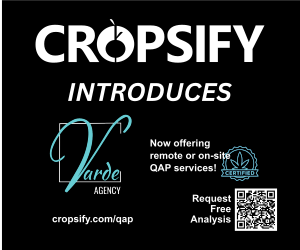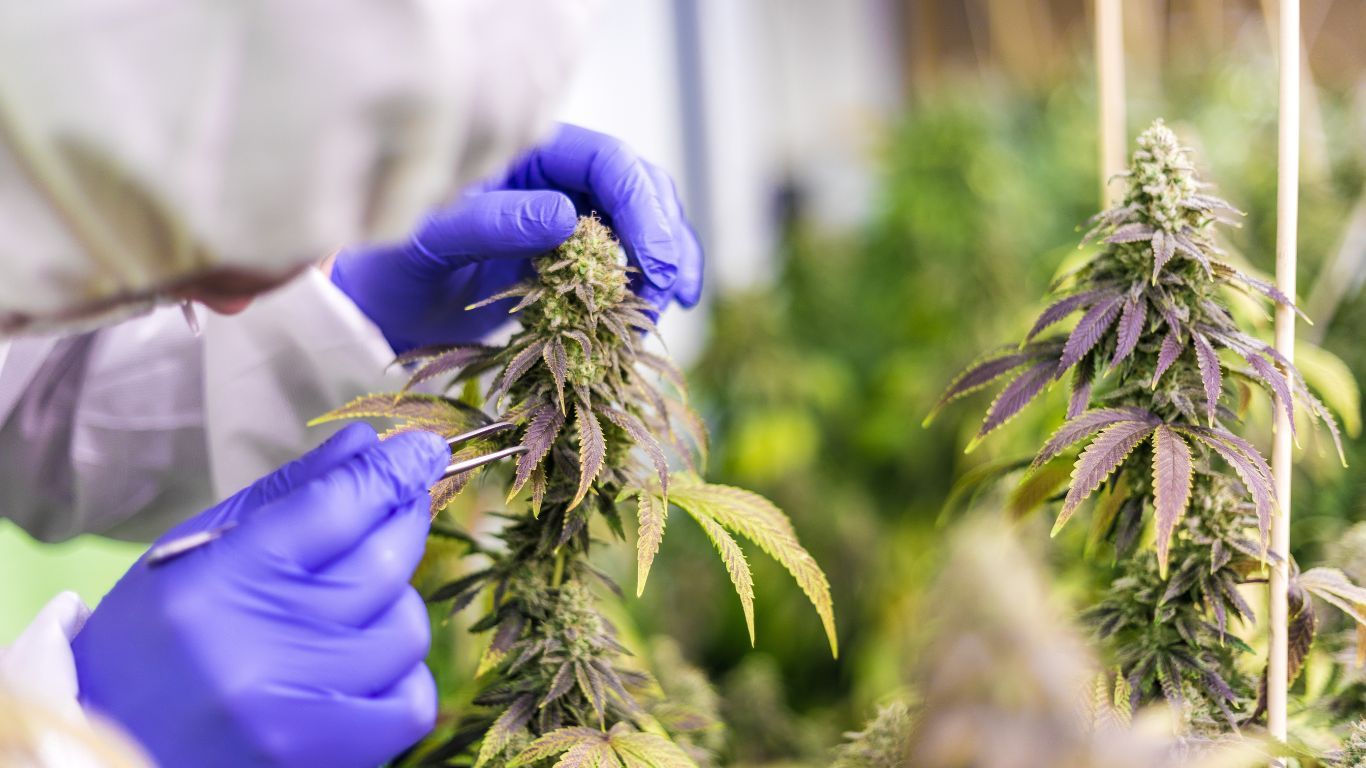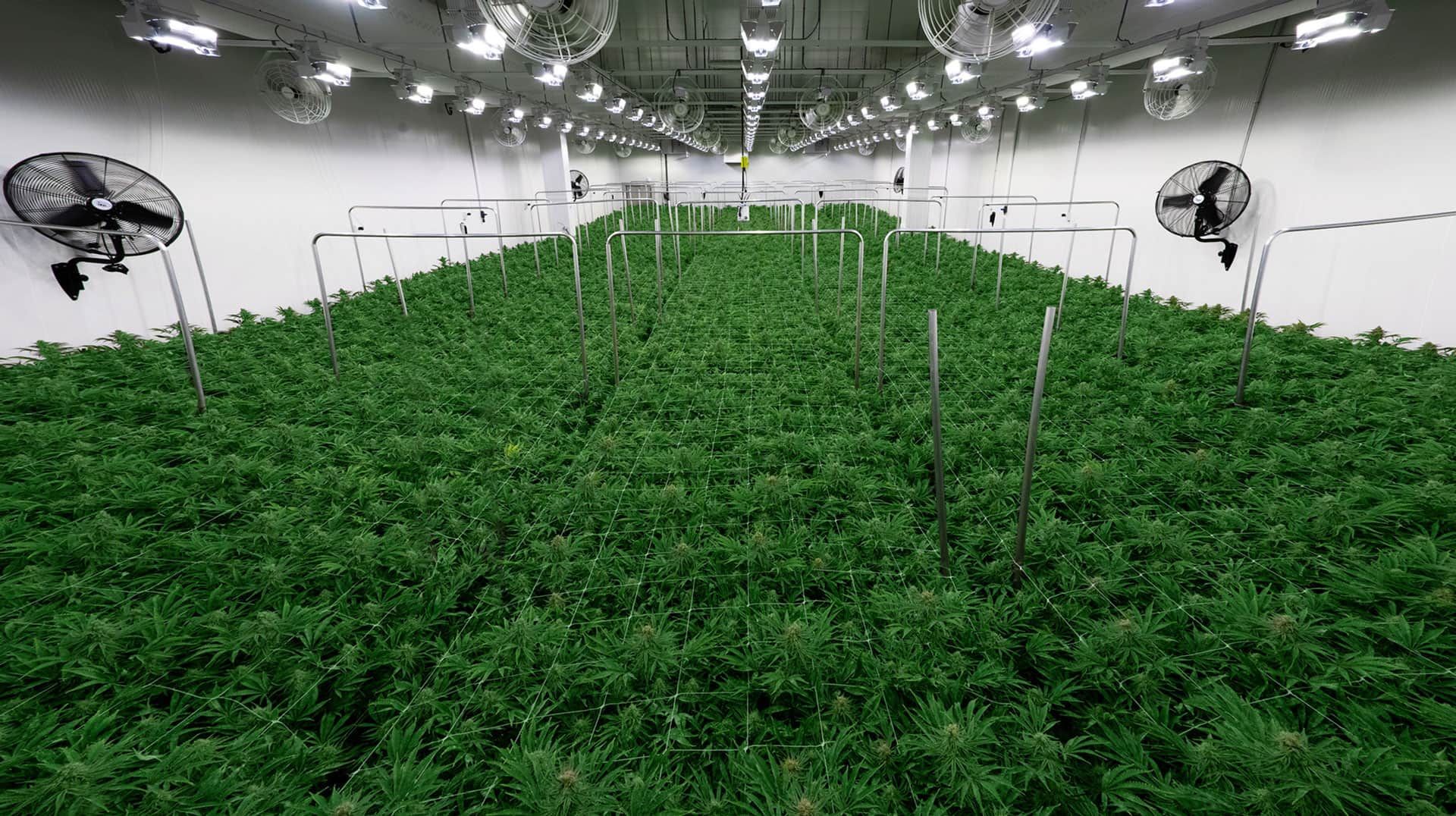
Trapped behind closed and washed out roads following a major storm that passed through the region on November 15, BC producers are looking to find creative solutions to get their products to market.
With all routes into BC’s Interior region cut off from the distribution warehouse in the Lower Mainland, producers and retailers are trying to find new delivery options.
Just like retailers in BC’s Interior are having trouble getting their orders from the BC LDB’s warehouse in Richmond, many producers are also facing similar challenges getting product form their facility to the LDB, or out to medical patients.
Tom Ulanowski, the VP of quality assurance and regulatory affairs at Nextleaf Labs—a BC-based processor—and Chair of the C-45 Quality Association—an industry association—says he sees these delays have ripple effects across the industry for some time.
“More than half of licensed cannabis retail stores in BC will have very limited supply for the foreseeable future. It will also likely affect the upstream supply chain by delaying deliveries to the Richmond warehouse and also the placement of new orders by the BC LDB from cannabis processors located in BC and throughout Canada,” he explains.
“Furthermore, processors located in areas affected by recent events will have to postpone shipments to the BC LDB, or arrange for alternative transportation (i.e., via air).”
In addition to these delays, Ulanowski also says he could see supplies inside the LDB warehouse building up as they struggle to get products out to retailers while still bringing in orders from LPs, especially those outside BC.
“There is also the potential for the warehouse stock to continue to increase as shipments continue to arrive in Richmond from across the country while deliveries to retailers throughout BC are temporarily impacted,” he says.
It will also likely affect the upstream supply chain by delaying deliveries to the Richmond warehouse and also the placement of new orders by the BC LDB from cannabis processors located in BC and throughout Canada.
Tom Ulanowski, VP of quality assurance and regulatory affairs at Nextleaf Labs and Chair of the C-45 Quality Association
Ben Williams, the owner of Joint Ventures Craft Cannabis—a processor in Salmon Arm who packages products for several BC growers—says they have approached the BC government asking them to allow producers like themselves and others to sell product directly to retailers, to bypass this supply chain bottleneck.
The BC government has said they have plans to allow such direct sales sometime in 2022, and his hope was to get them to push the project up to address the current need. So far they have not responded to the request.
“Being located in the Interior, we have a radius of hundreds of stores throughout the Okanogan and Shuswap area within a fairly short drive,” explains Williams.” Because everyone is cut off, it’s not only the LDB receiving product that is a challenge, but also obviously turning it around and shipping it to stores.”
Initially, Williams says he and his team looked at renting a helicopter to take their shipments to the LDB but felt the cost and logistics didn’t make sense. Plus, it still wouldn’t have a path to get it back to retailers in the Interior.
“To go to that level of complexity and cost doesn’t make a whole lot of sense when I’m literally staring across the road at Salmon Arm Cannabis, it’s like 100ft away. It makes a lot more sense for the Interior here to just take the stores the product that they need.”
“We can keep stores stocked up, we can keep consumers smoking legal weed and not reverting back to the illicit market. We understand that it’s off-the-cuff, the system is not dialled-in yet, but it’s not rocket science and with a little paperwork we could do this and that would really help out consumers, stores, and the LDB out.”
Janeen Davis, Director of Sales at Joint Ventures, says she has heard from several retailers in the area who have told her long delays in new product shipments could seriously hurt their businesses. StratCann spoke with one Salmon Arm retailer earlier this week who said a delay of even one week in their product delivery would mean they’d start to see empty shelves.
“I have had retailers reach out this week and tell me that they want me to ask on their behalf for a direct delivery model because if they don’t receive product within a week they might be sold out of many SKUs, causing them to have to lay off staff, which is a terrible thing to do right before Christmas,” says Davis.
“I’m literally staring across the road at Salmon Arm Cannabis, it’s like 100ft away. It makes a lot more sense for the Interior here to just take the stores the product that they need.”
Ben Williams, Joint Ventures Craft Cannabis
One producer near Hope, BC, which was cut off from the rest of BC by road closures to the east and west, resorted to hiring a helicopter to get shipments off to their medical cannabis consumers, as well as bring supplies in for their staff, facility, and community.
Canna Farms owner Ray LaFlamme says they had an employee who lives in Mission buy groceries and other supplies and sent them to YVR, where they were then loaded onto a helicopter and brought into the Hope area.
The Canna Farms team then loaded up orders of medical cannabis onto the helicopter to be sent back to Vancouver airport where it was met by Canada Post and Purolator couriers, to deliver to medical patients.
Laflamme says the provincial boards like the LDB are not a huge priority for them, and what products they do sell into those markets aren’t on a weekly basis, so they can wait.
“Patients are our priority,” says LaFlamme. “The provinces are not as much of a priority. Their shipments are more sporadic and they’ll get a whole pallet at a time, but with medical, it’s just a little package at a time. And people need their medicine.”
“I’m just really proud of the whole team for putting this together so fast. We brought a bunch of supplies and equipment and food for people in Hope and some of our staff. Everything from diapers to cartridges for our inhaler masks.”
Another BC cannabis company, Pistol and Paris, a cannabis brand that retails products from different BC growers, also made use of their helicopter to help out people stranded by the floods and road closures.
Dylon King, the founder of Pistol and Paris who is known for the helicopter he uses to visit growers across BC, decided to put it into action to help people in the Hope region as well.
“There’s a lot of people in a lot of tough situations,” he told the Okanaganz, an online news source for cannabis in BC’s Interior. “They were so desperate to get out of Hope. I didn’t charge anything. I just wanted to give back.”
“There’s so many places underwater, so much livestock dead. It makes you realize just how fortunate we are to be safe and dry.”
Norton Singhavon, the CEO of Avant Brands, with a facility in Vernon and Chase BC, in the province’s Interior region, says they haven’t been as heavily impacted by the road closures because they already use both ground and air shipping, but notes relying on air can be more expensive.
“We utilize both ground and air shipping, with the latter being faster but significantly more expensive,” he explains. “When road closures do happen, we either utilize more circuitous ground routes or air shipping.”
Singhavon says he has not heard from the BC LDB on the issue yet.
The BC LDB Vendor Relations team did send an email out to some BC producers advising them that transportation systems would expect to be disrupted, advising them to check with their carriers and “provide a status update to the BC Cannabis Operations Demand Planning team as soon as possible.”
The email also notes that the LDB is experiencing “temporary service disruptions that may result in delayed deliveries to our wholesale customers.” They have also recently told retailers they will begin airlifting products to the Calgary airport, to then be driven into BC from the east to bring them their orders, but warns the process could take some time.
Many of these issues could be addressed if the BC government allowed producers to sell directly to retailers, adds Ulanowski. The province has announced their plans for such a program in 2022.
“The ability for processors to directly ship products to retailers would be especially beneficial to businesses located outside of the Lower Mainland, particularly smaller cultivators and processors. Perhaps this tragic situation will be able to highlight the benefits of such a model, and accelerate the Province’s plans to implement the program.”
Still, he emphasizes that the province is dealing with more than just cannabis supply chain issues and cautions patience.
“The situation is still evolving, so I suspect there will be additional updates provided to BC LDB suppliers and customers in the near future as the extent of the damage is understood and timelines for repairs are known. The Province of BC recently announced a State of Emergency to assist in repairing critical infrastructure, so we all have to be patient and monitor the situation closely. The cannabis supply chain is only one of many supply chains impacted by the recent extreme weather events.”














